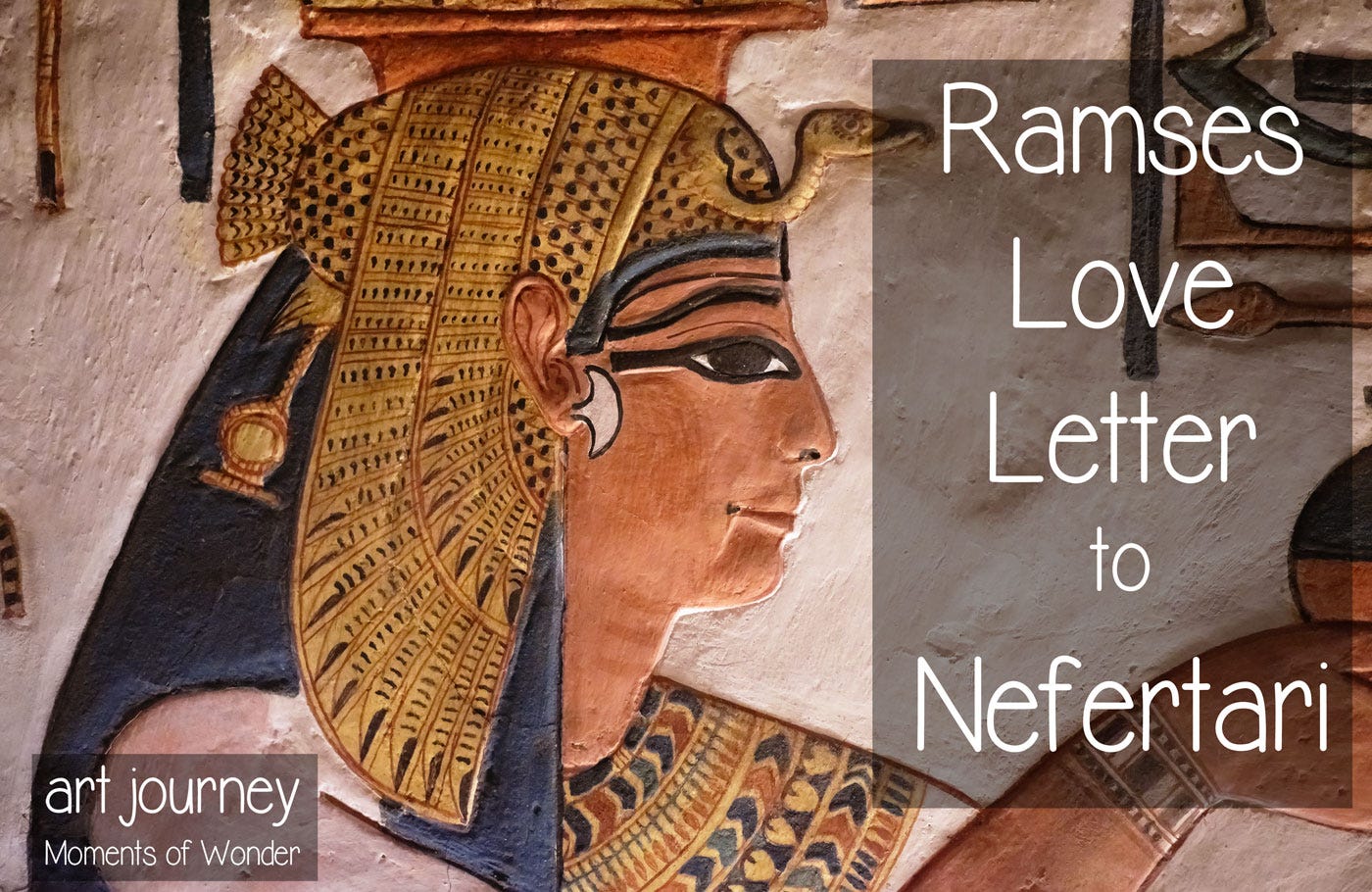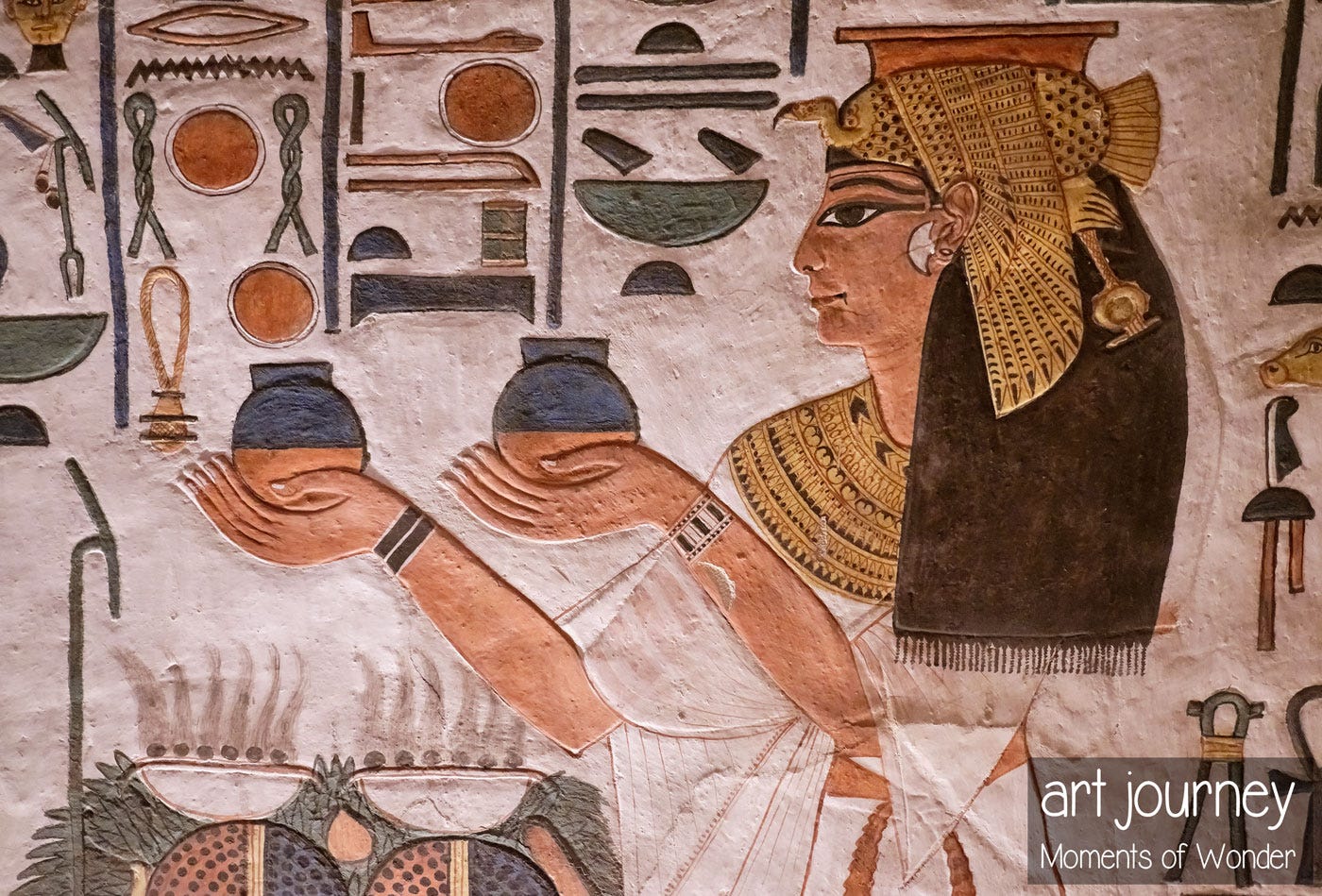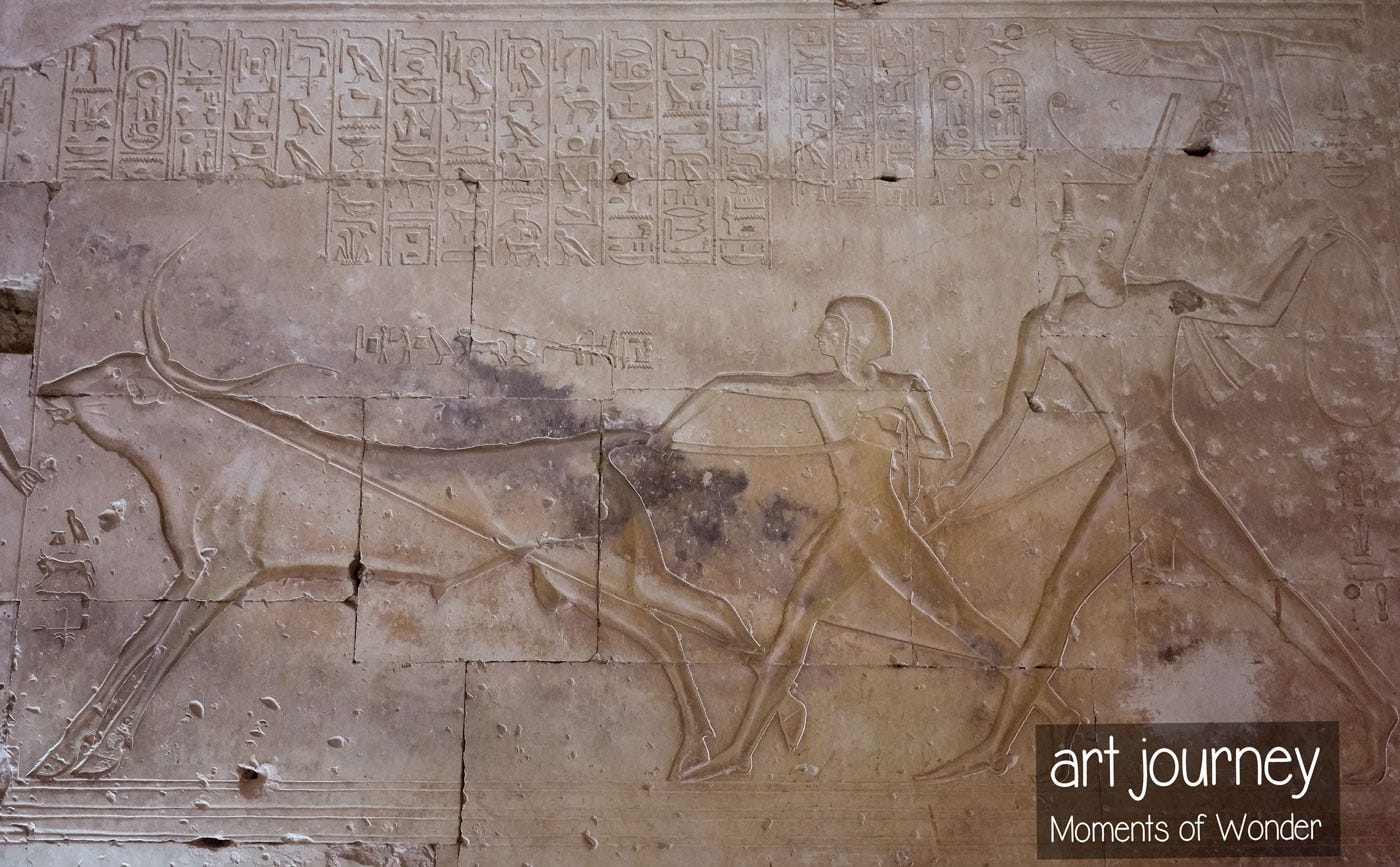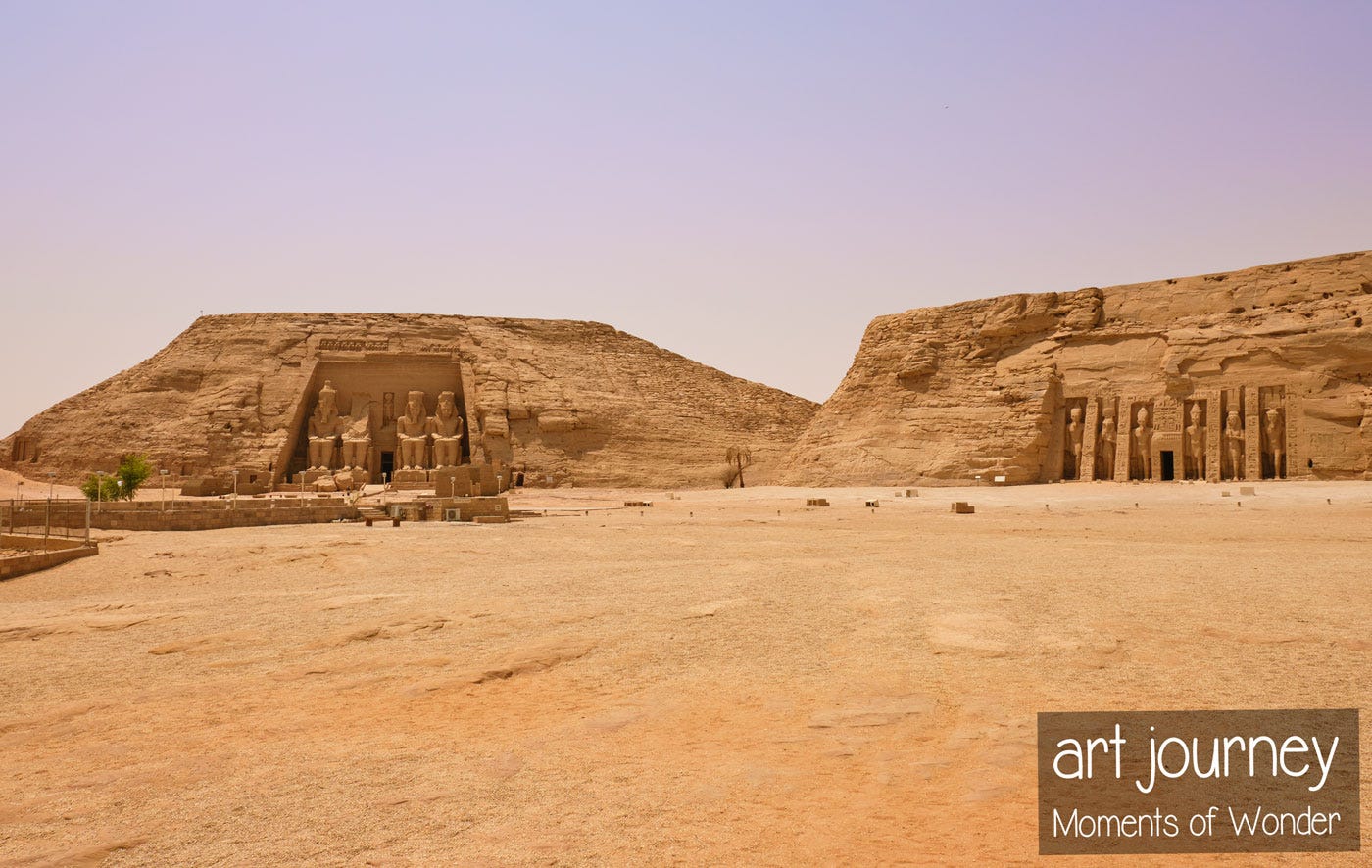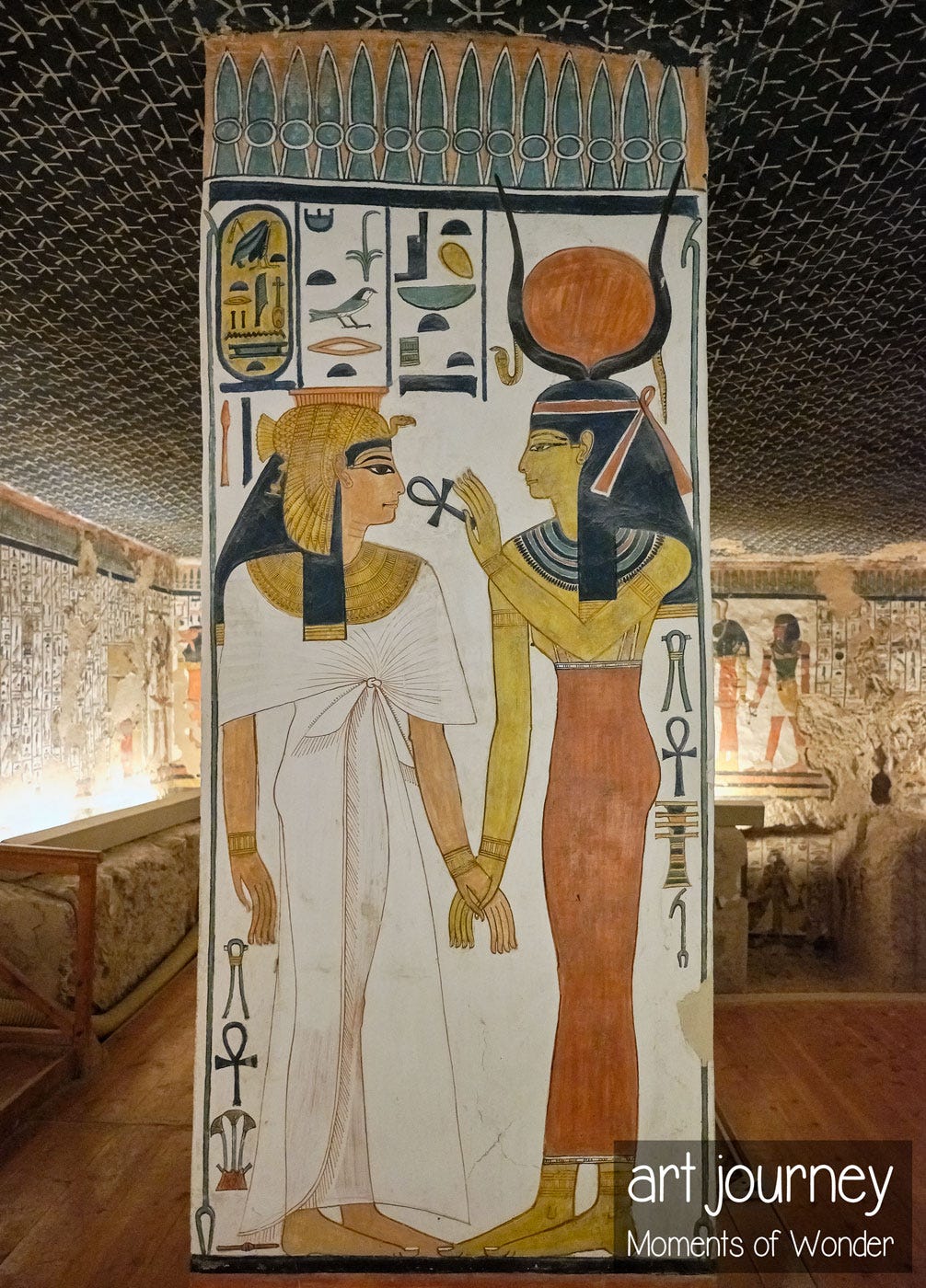You've probably been fascinated by Egypt for a long time and dreamed of visiting it one day, so you eagerly watch documentaries to imagine its wonders.
It dawned on you that there is a recent trend on TV of hooking viewers with fanfare and the promise of great treasure.
After an hour of suspense, all you see is a shredded mummy and two broken pots.
And when you turn to the internet in search of interesting stories about Egypt, you read that Ramses the Great wrote a poem to his wife, Nefertari.
My love is unique — no one can rival her, for she is the most beautiful woman alive. Just by passing, she has stolen away my heart.
Finally, a Moment of Wonder, heartfelt stories about the ancient Egyptians!
You can also read online about Ramses' passport issued for his visit to Paris in 1976.
Hurrah, at long last, something amusing about Pharaohs!
Sorry to disappoint you: this has all been a waste of your brain cells and precious time.
There's no poem, and no passport has ever been issued for Ramses' mummy. Yet these are copied and pasted online, even from reputable sources, as if they were true.
Do not despair, though, as this is not as if ancient Egypt lacks fascinating stories; quite the contrary!
As you will see here, Ramses did craft an impressive love declaration for Nefertari, but one has to go to Egypt to appreciate it.
Fasten your seatbelts, and get your passport; with this two-part story, we are flying to Luxor and Abu Simbel.
We'll discuss Ramses’ journey from anonymity to divinity and his relationship with Nefertari.
Ramses II's humble beginnings
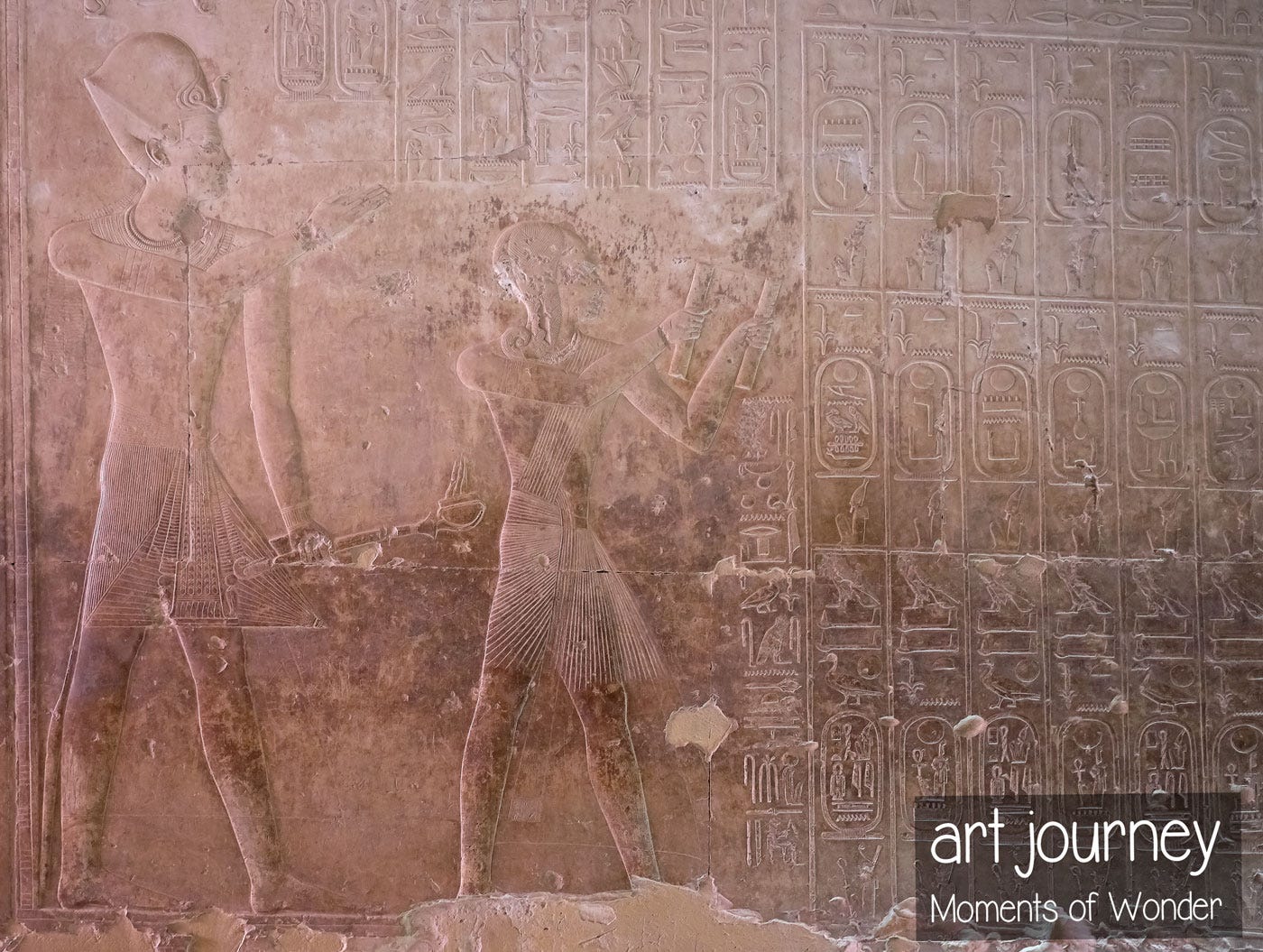
TV programs that start with Hollywood soundtracks tell you that Ramses was Great, but they usually fail to explain that he was born a nobody.
This is not a typo; the Great Ramses was born a complete unknown.
Let me explain: The Amarna episode—the reign of Akhenaten, Nefertiti, and Tutankhamun—was a catastrophe from an Egyptian point of view.
Akhenaten rocked Egypt's boat by reforming state religion and losing Egypt's Empire.
Soon after his son Tutankhamun died as a teenager, successive Pharaohs did their best to mop up the mess.
One of them was Horemheb, a general who ascended the throne. But he had no sons to succeed him.
As luck would have it, his competent vizier—prime minister—was a military colleague, a man from the Delta—the North, above Cairo—.
The vizier, a former Superintendant of Horse—King's Charioteer—was named Paramessu.
Not only was he a safe pair of hands, but he also came as a package, already having a son named Sethi and a grandson, a young boy named Ramses.
The boy was born far from the capital into a commoner military family. With no royal blood, they would have had zero chance of sitting on the throne in normal circumstances.
But that all changed when Horemheb chose Paramessu as his successor, Pharaoh Ramses I.
Sethi and his young son were catapulted from the stable fumes to the sweet smells of the royal palace, one step from the throne of Egypt.
That was context to help you envision how the young boy would have looked up to a well-born young lady named Nefertari.
Who was Nefertari?
The reality of ancient Egypt is that we know little about the personal lives and feelings of the kings and queens.
The only people whose lives and feelings we know well are the artisans of the Valley of the Kings.
Something we will explore in a future story.
To illustrate how little we know about the lives of the Pharaohs, two examples:
- Kheops, builder of the Great Pyramid—all we have is a tiny statuette and that gigantic monument.
- Ramses the Great—most of what we know is what he had carved in stone when he addressed the gods and wrote history.
This means there is a massive void in the personal lives and characters of Kings and Queens, and some are happy to fill it with the brown stuff usually shoveled by stable boys.
As should hopefully be visible—all the photos are by the author—everything here comes from studying Egyptology, reading, and traveling.
Let me illustrate: the word Queen does not exist in the Egyptian language. The word is King's wife.
That is why it makes no sense to call Hatshepsut a Queen, as she was the King of Egypt. There is a slight difference between the two.
That is why we need to discuss Nefertiti's official titles to give the impression that she was more than a 'King's Wife.'
Nefertari means The Most Beautiful Among Them
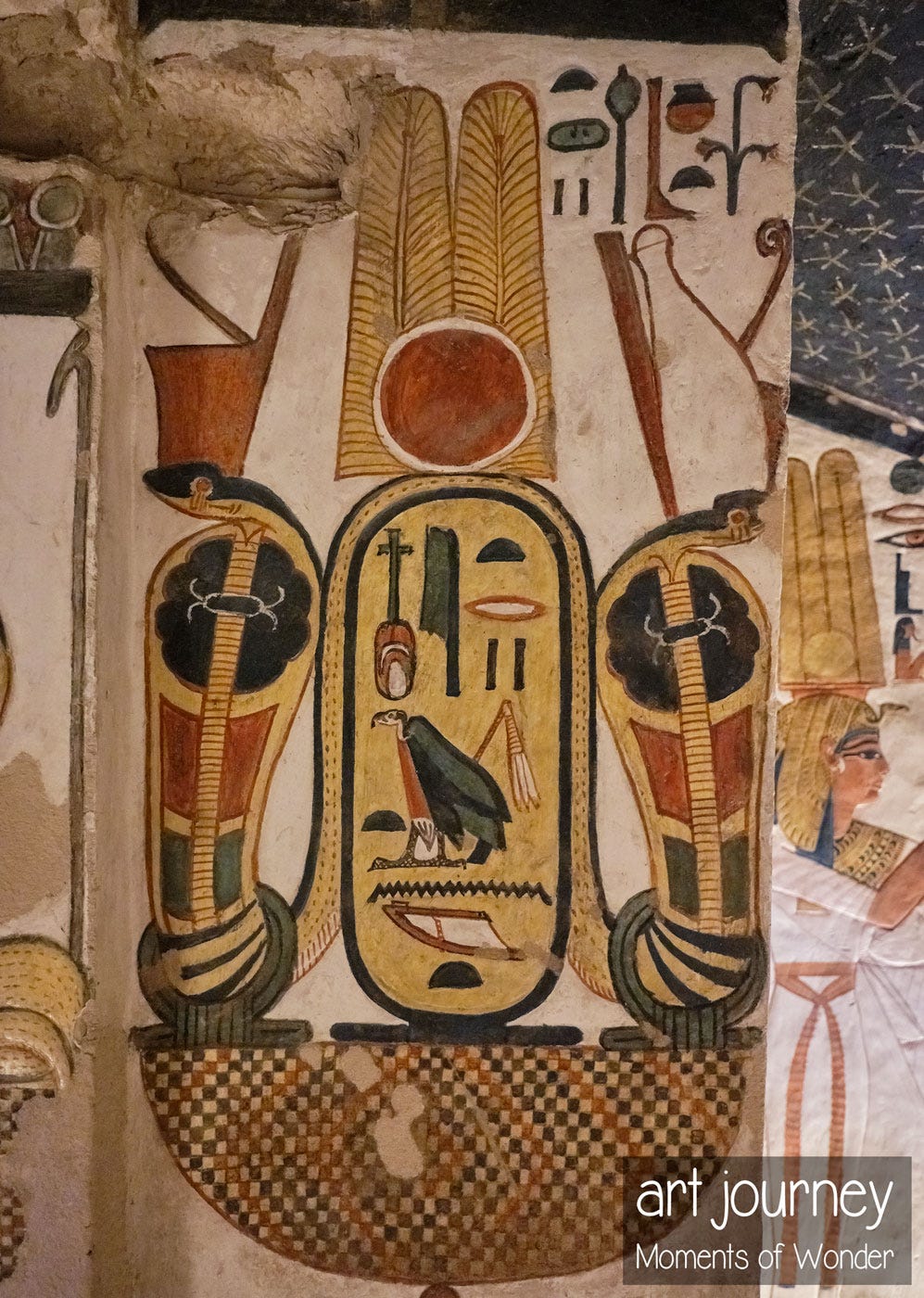
For starters, she was a Great King’s Wife, and King’s Mother, having given Ramses an heir. Her importance is visible in the picture above.
The oval encasing a name is usually reserved only for Kings. The inscription on the top right and the figures around it mean Mistress of Upper and Lower Egypt.
Which is the feminine equivalent of King.
Among her many titles is Who Satisfies the Gods. That also is the female equivalent of Pharaoh, as the sole priest between gods and humanity.
She wrote diplomatic letters to a foreign Queen, so she was much more than a 'King's wife.'
Her name is Neferet jry meret n Mut, which means The Most Beautiful One, Beloved of Mut.
And nefer does not just mean beautiful. It does not imply that Nefertiti and Nefertari were beautiful but fragile decorative flower pots.
The word nefer also means goodness and perfection. It is used for Kings as nefer netjer—good god.
Calling a woman nefer does not reduce her to being just a pretty face.
The magnificent temple of Abydos (above) depicts Sethi setting up young Ramses toward greatness.
Here, Ramses talks of the gifts granted by his father:
He equipped me with a household of women, a royal harem, like the beauties of the palace, he chose for me wives.
Ramses was a prince in his mid-teens, and it is more than likely one of the 'beauties of the palace' was The Most Beautiful One, aka Nefertari.
That's the opening to the educated guess that Nefertari was a princess from Thebes—Luxor—who got to be the person polishing a rough diamond, teenage Ramses.
Born in the North into a military family, he started life at the level of those who follow orders.
In Nefertari's tomb, a small item mentioning Pharaoh Ay might be a clue—it is not sure—that she was of royal birth. She was likely a princess, born to give orders.
Imagine the situation—Ramses' grandpa was a vizier, so although he was a commoner, it is not like he was a fellah, the Egyptian equivalent of a redneck.
He was well educated but still needed to be taught the unwritten rules of genteel society and gain the self-confidence needed to shape history.
As we will see, Nefertari was the woman behind the great man.
One of many wives, but...
Sorry to dampen expectations of romantic poetry. Nefertari was one of young Ramses’ two Great Wives. The other was Isetnofret, but you've probably never heard her name.
Nefertari gave birth to Ramses' first son. That was just a start; Ramses had 100 children!
It is unclear how many wives he had—a lot—but Nefertari died when Ramses still had half a century ahead of him.
In old age, Nefertari may have been a blurry memory in Ramses' mind. With so many wives, concubines, and children, one wonders if he had them wear name tags.
Now you can see the odds of a lovelorn Ramses writing a poem to Nefertari.
This does not mean Nefertari had no special place in Ramses' heart. As you will see in Part II, quite the contrary...
This little virtual trip illustrates the private tours of Egypt that I organize with my Egyptian friends.
To get an idea of what it feels like, here's feedback:
Guillaume, Saber and Saleem did a professional and wonderful job from pick up at airport to drop off at cruise, their knowledge on the ground of the history and what we experienced was paramount and the local knowledge of when and where to be to avoid crowds invaluable in the seamless planning and experience.
I am so impressed with this group I already have 2 or 3 close friends and family I will be meeting in coming weeks wanting to know what our trip was like and to do the same, I think the personalised service and the planning was excellent.
Thank you all was a wonderful experience and hope to be back. Can not speak more highly of this group.
I had very high expectations due to the time spent planning the trip and overall cost and will state that both Jane and my expectations where not only met but surpassed.
Again cannot say enough great things about something I waited so long to do and sometimes in these situations your expectations are not met because you have had so much time dreaming, again my expectations met and exceeded, worth every cent and the most disappointing part was flying home.
Find out more online : Art Journey Egypt





